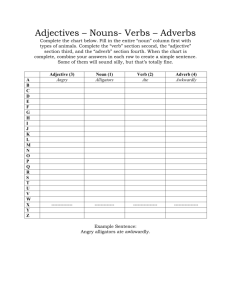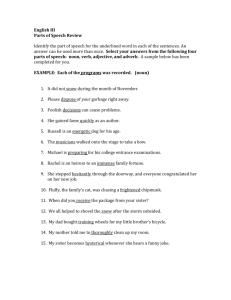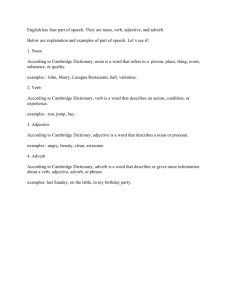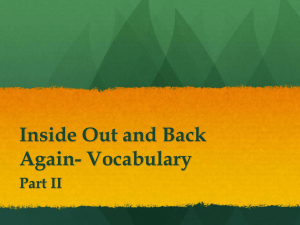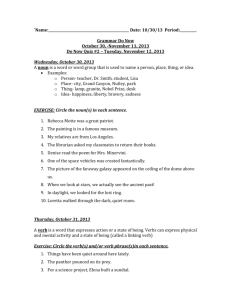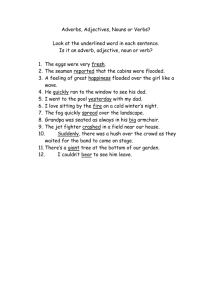WORD FAMILIES
advertisement
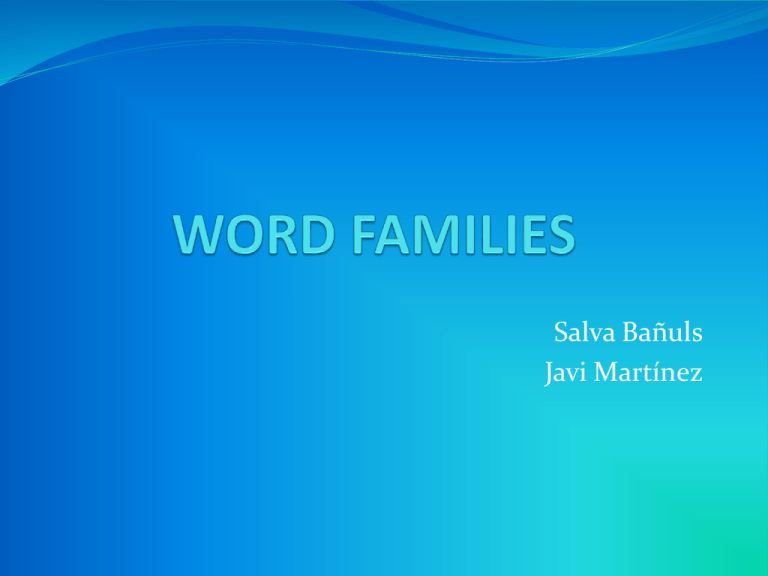
Salva Bañuls Javi Martínez Introduction Word families are groups of words that are sufficiently closely related to each other to form a 'family'. Words can be grouped into families in two main ways: they are similar in form; their meanings are related. Here are two examples of form-based word families: word - wordy - word (verb) - wording - word-list … (but not: worth, worry) family - familiar - unfamiliar - familiarity - familiarise … (but not: famine, famous) Introduction Each of these families is bonded by a common root word, although the resultant connections of meaning are also an important bonding feature. Two examples of meaning-based word families: big - little - size dog - puppy - kennel Word Families Word Forms Word families tests how well you know the various types of words that can be made from one word. A word can go from noun to verb to adjective to adverb by changing the ending of the word. Word Families Remember the common word endings used to make the different kinds of words: Noun: -ance, -ancy, -ence, -ation, -ian, -ism, -ment, , -ship, -or, -er Verb: -en, -ify, -ize, -ish Adjective: -able, -ible, -al, -ful, -ive, -ous Adverb: -ly, -ward, -wise -ness Word Families Example: Finale (noun, thing) -> finalist (noun, person) -> finalize (verb) -> final (adjective) -> finally (adverb) achieve (verb) = achievement (noun) happy (adjective) = happiness (noun) beautiful (adjective) = beautifully (adverb) eat (verb) = edible (adjective) NOUN VERB Example: deceive deception 1. dedicate dedication dedicate 2.demonstrate demonstration demonstrate 3. dominate 4. imagine 5. improve 6. inform dominance imagination ADJECTIVE deceive dedicated demonstrable dominate dominant imagine imaginative improvement improve improved information inform informative 7. organize organization 8. produce production produce productive 9. signify significance signify significant 10. behave behavior behave behavioral organize organized deceived END

